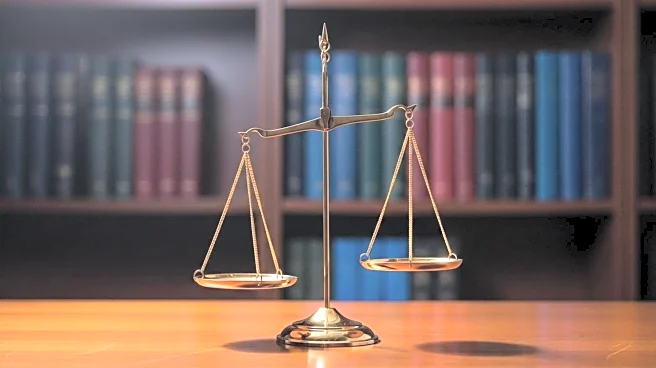What's Happening?
A recent U.S. Supreme Court decision mandates that schools must allow parents to opt their children out of lessons containing LGBTQ+ references due to religious objections. The ruling, stemming from the case Mahmoud v. Taylor, has left schools, including those in Orange County, grappling with its implementation. The decision reverses previous lower court rulings and requires schools to notify parents about potentially sensitive topics. However, the ruling lacks clarity on how schools should determine the significance of religious impacts and what constitutes objectionable content. The California Department of Education has advised schools to consult legal experts to navigate these challenges, emphasizing the importance of maintaining inclusive environments for all students.
Why It's Important?
The Supreme Court's decision could have significant implications for educational policies and the inclusivity of school environments. By allowing parents to opt out of certain lessons, the ruling may lead to broader censorship of educational materials, potentially affecting subjects beyond LGBTQ+ themes. This decision raises concerns about the balance between religious freedoms and the rights of LGBTQ+ students to be represented in school curricula. The lack of clear guidelines may result in varied interpretations and implementations across different school districts, potentially impacting the inclusivity and educational experience of students nationwide.
What's Next?
Schools are expected to seek legal guidance to develop policies that comply with the Supreme Court ruling while maintaining inclusive environments. The California Department of Education has recommended consulting lawyers to devise plans tailored to specific circumstances. As schools work through these challenges, there may be further legal and policy developments to address the ambiguities in the ruling. Stakeholders, including educators, parents, and advocacy groups, will likely continue to debate the implications of this decision and its impact on educational inclusivity.
Beyond the Headlines
The ruling may set a precedent for future cases involving educational content and religious objections, potentially influencing broader discussions on censorship and educational freedom. It highlights the ongoing tension between religious rights and the representation of marginalized groups in educational settings. The decision could lead to increased scrutiny of educational materials and policies, prompting schools to reevaluate their approaches to inclusivity and diversity.










